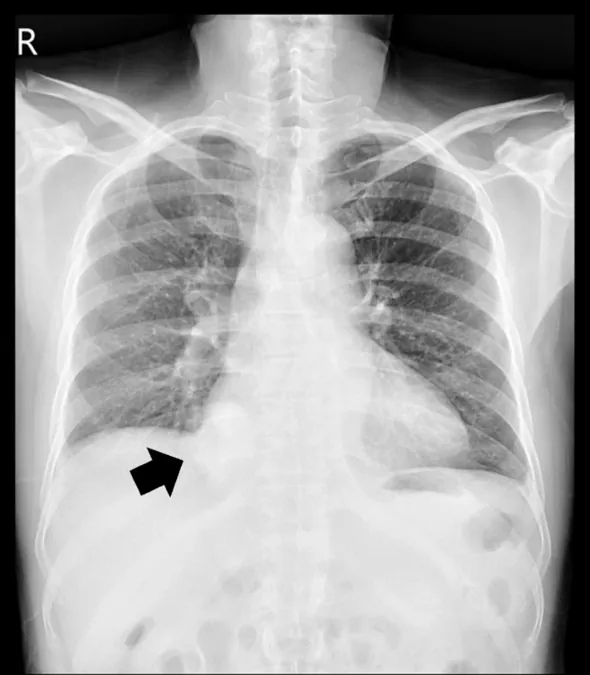
Groundbreaking Discovery: A Rare Case of Cryptococcus Gattii Infection Related to Autoimmune Antibodies
2024-12-18
Author: John Tan
Background
Cryptococcosis, a potentially deadly fungal infection primarily affecting immunocompromised individuals, has recently garnered attention due to its varying presentations ranging from asymptomatic conditions to extensive systemic infections. Among the species of this notorious fungus, Cryptococcus gattii has recently been identified as a significant pathogen, particularly in non-HIV-infected patients. This article discusses a unique case of disseminated Cryptococcus gattii infection in a patient with elevated granulocyte-macrophage colony-stimulating factor (GM-CSF) autoantibodies that was successfully treated.
Case Overview
In a remarkable report, a previously healthy 61-year-old man presented to the hospital after experiencing three weeks of blurred vision, mild fever, and persistent headaches. His health history was mostly unremarkable except for low back pain following a fall on his farm a year earlier. As his symptoms escalated, including bilateral double vision and weakness in his left leg, he sought medical assistance.
Upon examination, vital signs indicated slight fever but no hemodynamic instability. Laboratory tests revealed mild leukocytosis, while advanced imaging techniques, including MRI, highlighted alarming findings—massive lesions in the brain and spine, alongside pleural effusions indicative of a more severe underlying condition.
Thoracoscopic interventions uncovered cystic lesions, and pathology confirmed the diagnosis of disseminated Cryptococcus gattii infection. Alarmingly, the presence of autoantibodies against GM-CSF was detected, raising questions about the patient's immune response to the fungal invasion.
Treatment Journey
The patient received an aggressive antifungal regimen starting with intravenous amphotericin B, followed by flucytosine and fluconazole for consolidation therapy. Remarkably, after just a month, his condition improved significantly, and imaging studies conducted after a year revealed resolution of the previously observed lesions.
What Sets This Case Apart?
This case is pioneering as it represents the first recorded instance of disseminated Cryptococcus gattii infection linked to autoantibodies against GM-CSF, implicating significant implications for understanding immune-mediated susceptibility to fungal infections. The patient's environment played a crucial role, living in a region abundant in Eucalyptus trees, which are known reservoirs for Cryptococcus gattii.
Cryptococcus gattii differs from its counterpart, Cryptococcus neoformans, as it predominantly affects immunocompetent hosts and is typically found in tropical climates. Given its association with severe outcomes, recognizing this pathogen's existence in non-HIV patients leads to appropriate clinical vigilance and timely diagnosis, potentially taming its life-threatening severity.
The Bigger Picture: Why This Matters
Epidemiologically, non-HIV/non-transplanted (NHNT) patients now constitute a significant portion of cryptococcosis cases and are disproportionately affected, with poor outcomes compared to those with HIV. This case exemplifies how autoimmune conditions, such as elevated anti-GM-CSF autoantibodies, can predispose otherwise healthy patients to devastating infections.
This groundbreaking report emphasizes the need for healthcare providers to consider cryptococcosis in NHNT patients and to investigate potential underlying autoimmune issues. The presented findings not only underscore the complexity of interactions between pathogens and the immune system but also highlight the necessity of early intervention and tailored therapy in preventing severe health consequences.
Conclusion
The identification of a disseminated Cryptococcus gattii infection in a patient with anti-GM-CSF autoantibodies provides valuable insights into the intersection of infectious diseases and autoimmune disorders. As researchers unravel the complexities of cryptococcosis and its relationship with immune system dysfunction, this case sheds light on the importance of proactive medical assessment for unusual pathogens in seemingly healthy individuals.




 Brasil (PT)
Brasil (PT)
 Canada (EN)
Canada (EN)
 Chile (ES)
Chile (ES)
 España (ES)
España (ES)
 France (FR)
France (FR)
 Hong Kong (EN)
Hong Kong (EN)
 Italia (IT)
Italia (IT)
 日本 (JA)
日本 (JA)
 Magyarország (HU)
Magyarország (HU)
 Norge (NO)
Norge (NO)
 Polska (PL)
Polska (PL)
 Schweiz (DE)
Schweiz (DE)
 Singapore (EN)
Singapore (EN)
 Sverige (SV)
Sverige (SV)
 Suomi (FI)
Suomi (FI)
 Türkiye (TR)
Türkiye (TR)